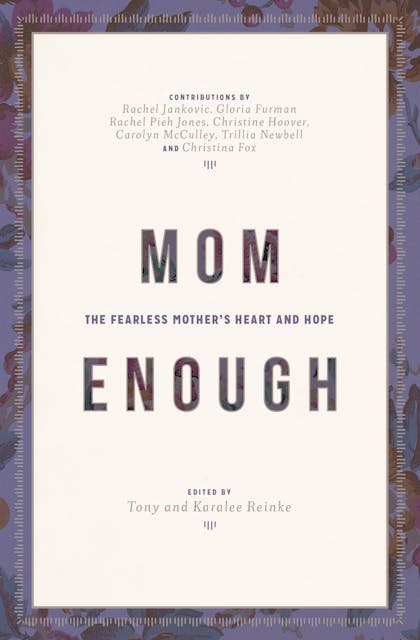It’s Good to Be a Jar of Clay
Clay jars are delicate. They crack easily even though they may seem relatively durable.
On one hand, clay jars are refined by fire. There are several steps to making them, culminating with the kiln. This furnace carries the clay from an unfinished product to a household amenity. But once completed, the slightest nudge on the corner table could send a jar plummeting to its demise. The durability is deceiving. The thick porcelain is more delicate than it appears. No wonder the Bible often describes people as jars of clay. We are like potter’s vessels, waiting to be broken into millions of tiny pieces (Psalm 31:12, Isaiah 30:14). We are weak. We get tired and weary. We grow old and frail.
Being a mom to small children, I am faced daily with my weakness. Often it’s in the form of tiredness and impatience. Motherhood can be tiring, but my children are not at fault for my weakness. They are a great joy and blessing. The tiredness part actually becomes another reminder that I am a part of a fallen world. It makes me feel how badly I need a Savior. A scenario that has played out in my home looks like this: I’m tired, yet in my pride I resist rest. After all, there’s so much to do. But then this ‘tiredness without rest’ can lead to impatience with my loved ones.
Embracing the Unlikely Asset
What if I instead embraced the fact that I’m a clay jar? What if I didn’t ignore the fact that as a human I really do get tired sometimes? What if I gained a biblical understanding of what it means to be weak? It was recently said, “In God’s economy, our weakness is one of our greatest assets.” But isn’t this hard to believe? It’s hard to believe that weakness can be an asset — that it’s for our good. But what weakness does — like nothing else can — is draw our attention to the One who never grows tired or weary (Isaiah 40:28).
Trying harder in our own power doesn’t solve our weakness. If anything, it exposes more of our weakness. My self-exertion typically leaves me depleted and lacking joy. Jonathan Parnell writes, “Embracing weakness brings more peace because we realize afresh that God loves us by his grace, not because we are strong. Our joy doesn’t rest in our ability, but in the approval God gives us in Christ, the one in whom he chose us before the ages began according to his own purpose and grace (2 Timothy 1:9).”
This should bring joy to a weak, weary mom! God loves you as you are. He didn’t call you to himself while you were strong, but while you were weak (1 Corinthians 1:27). It was while we were still weak, that Christ died for the ungodly (Romans 5:6).
Walking with Confidence
That is the great purpose behind why we are called jars of clay. It is to show the surpassing power belongs to God and not to us (2 Corinthians 4:7). We are weak, we are frail, we are lame — and yet, we are chosen. We are loved. “God chose what is low and despised in the world, even things that are not, to bring to nothing things that are, so that no human being might boast in the presence of God” (1 Corinthians 1:28).
Our only boast is in Jesus our Lord who is for us our wisdom and righteousness, sanctification and redemption (verse 30). He is our perfect righteousness, who not only meets us in our weakness, but covers our every sin and deformity by his blood.
Moms, we can walk in our weakness. We can boast in our weakness and confess our need for Jesus. Ironically, this gives us the right kind of confidence. We don’t have to walk with a limp, focused on ourselves. We walk confidently, not in our ability but in the ability of our Savior. We walk confidently not in our strength, but in his. It is good to be a jar of clay.

Mom Enough: The Fearless Mother’s Heart and Hope is a short book that explores the daily trials and worries of motherhood from the perspectives of eight women. In the trenches, they have learned (and continue to learn) how to treasure God and depend on his all-sufficient grace.
The paradox of this book is the secret power of godly mothering. Becoming mom enough comes from answering the question, “Are you mom enough?” with a firm “No. But God is God enough.”




